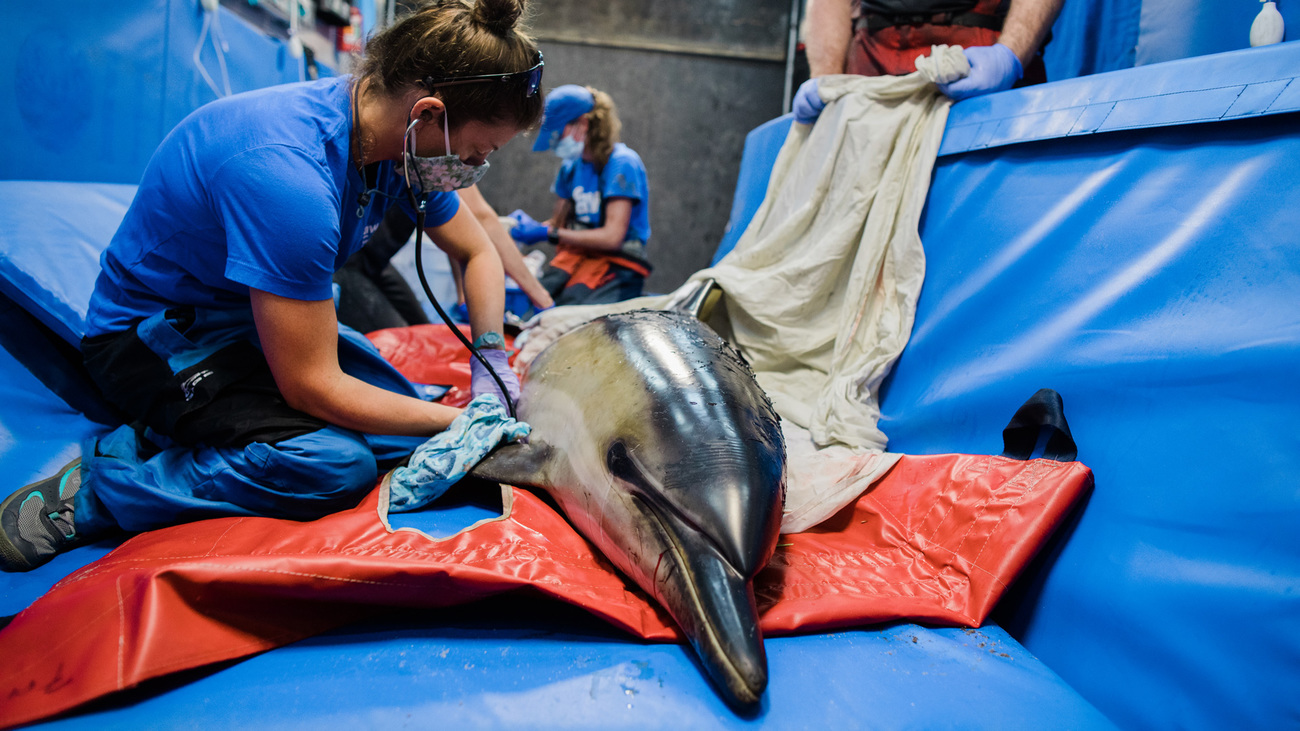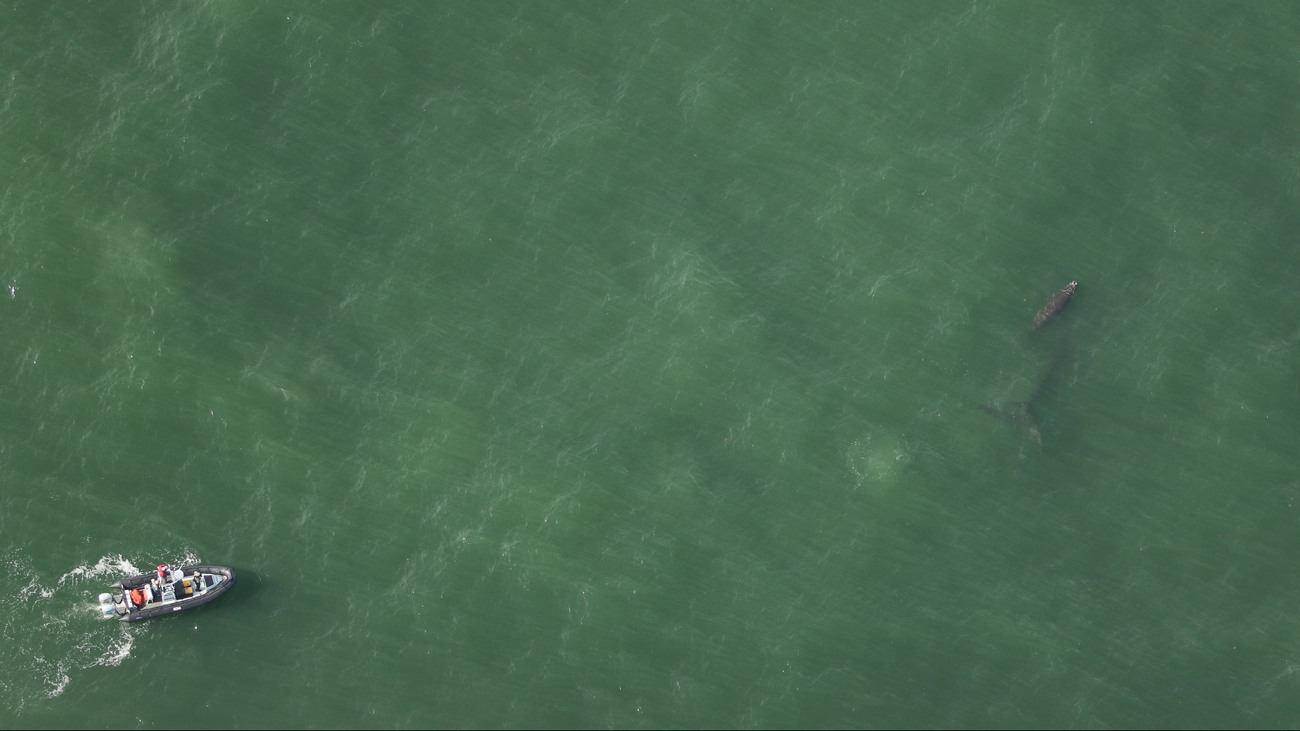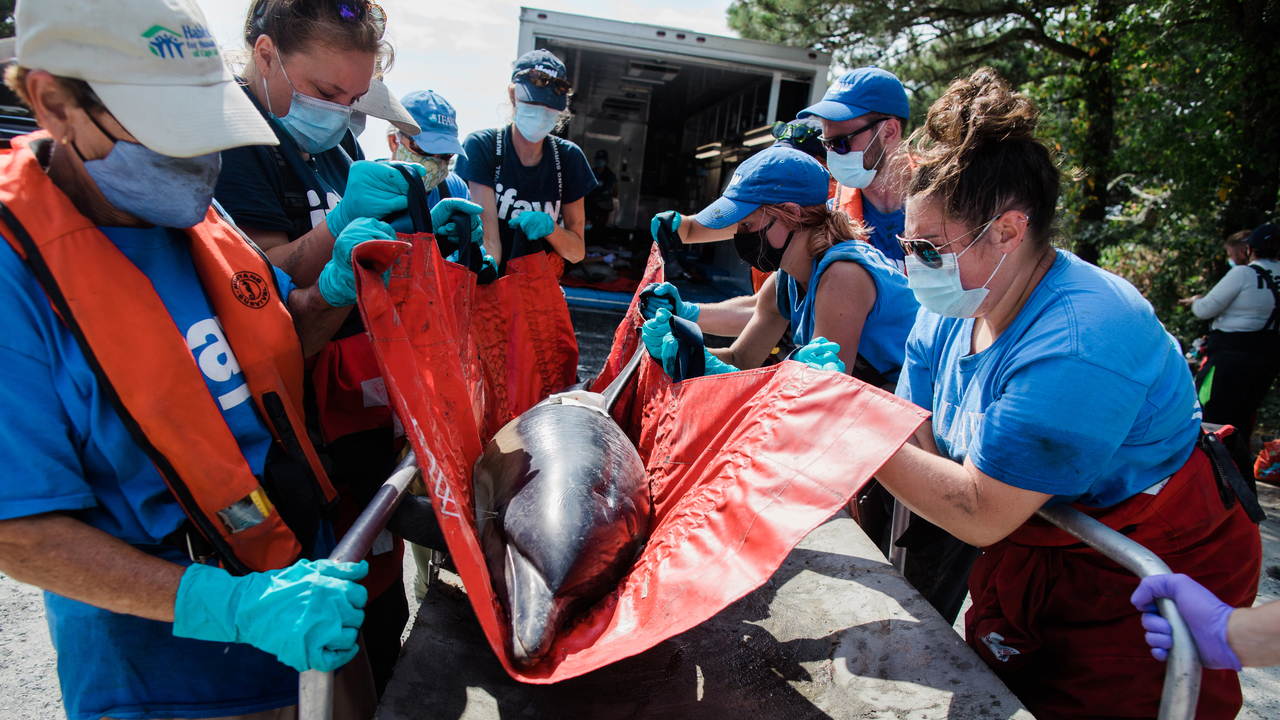marine mammal rescue
marine mammal rescue
For the last 22 years, IFAW’s Marine Mammal Rescue Programme has embraced the highest tenets of animal welfare and research science for marine mammal strandings. Our team is one of the most respected marine mammal stranding response programmes in the world. With over 5,500 responses to date, we know that every hotline call is not only an opportunity to provide aid to an animal in distress, but also a chance to advance our knowledge about marine life and how to help these animals thrive.
In fiscal year 20, the team responded to 257 reports of stranded marine mammals. This includes responses to 34 live small aquatic mammals (small cetaceans, including small whales, dolphins and porpoises), 21 of which were treated and released back to wild.
In addition to our hands-on rescue and research work, IFAW’s Marine Mammal Rescue team trains other response teams, increasing the welfare, treatment, and veterinary care of stranded marine mammals around the world. We also engage and train passionate members of local communities to support rescue efforts as volunteer responders. It’s a testament to what can be achieved for animals when we work together with the people living closest to them.
large whale remote drug delivery
In 2017, IFAW was awarded a Prescott Grant to take the lead in investigating the remote delivery of drugs to injured and entangled whales. The darting system used for the project was designed by biologists and veterinarians at the National Oceanic and Atmospheric Administration (NOAA), Woods Hole Oceanographic Institution and the Center for Coastal Studies, along with the New Zealand-based system manufacturer.
While the system was initially developed to provide temporary sedation to aid disentanglement efforts in complex scenarios where traditional disentanglement techniques are ineffective, it has equal utility in other needed medical interventions, such as antibiotic administration.
In January of 2020, our Marine Mammal Rescue team put years of preparations, equipment testing and deployment practice to work. As part of a team convened by NOAA, Marine Mammal Rescue staff deployed to Florida where the system was used to successfully administer antibiotics to an injured newborn right whale calf that had been the victim of a vessel strike. This was a groundbreaking event as it was the first operation to remotely administer medication to a right whale calf.
The team continues to practice and maintain the systems for operational readiness at a moment’s notice.
rushing to save marine mammals
The North Atlantic right whale, one of most endangered animals in the world, has faced devastating population losses in the last four years. Every individual whale matters more than ever, so we need to do everything we can to save each one.
IFAW maintains a custom-built large whale remote drug deployment system, making us the only team in the world with the capabilities to provide medical intervention to free-swimming large whales. This system was needed for the response to a severely injured right whale calf off the coast of Georgia, USA in January 2020. The right whale calf, born just days earlier, had already been the victim of a severe vessel strike. The multi-agency response team was able to relocate the calf, assess its condition, and remotely administer antibiotics. This marked the first time the remote drug deployment system was used to treat a North Atlantic right whale calf.
With 477 stranding responses, calendar year 2019 was our busiest year ever and one that pushed our teams and our resources to the limits as we ensured that every live animal received the best care possible. In fiscal year 20, the team responded to 257 stranded marine mammals, including out-of-region animals and animals that stranded more than once. This included responses to 34 live small aquatic mammals (small cetaceans, which includes small whales, dolphins and porpoises), 21 of which could be released. Three released dolphins were fitted with temporary satellite tags to allow for post-release monitoring which improves future responses.
In an effort to inform and focus large whale conservation efforts, IFAW maintains one of the most skilled large whale necropsy teams in the USA. In fiscal year 20 the team responded to eleven dead large whales in an attempt to determine the cause of death. Two of these responses were to North Atlantic right whales and in both cases human actions (entanglement and vessel strike) were determined to be the cause of death.
The Marine Mammal Rescue team was the recipient of a competitive Prescott grant to improve understanding of the highly infectious Brucella bacteria, which can result in reproductive disease, heart disease, severe lesions and, in some cases, death.
With the outbreak of COVID-19, the team’s constant response preparedness benefitted a whole new group: local first responders. The team was able to donate their existing supply of N95 masks and other personal protective equipment to local hospitals to help them bridge the gap until more supplies arrived.
Adapting to the pandemic didn’t stop there. Response protocols were thoroughly revised to increase safety and reduce exposure to COVID-19 for stranding responders while rescuing animals in the field. These protocols were shared across IFAW departments as well as partners regionally and internationally. Teams were able to continue to respond to reports of stranded or injured marine mammals and provide the best care possible for each individual animal.
Stay in the know. Be ready to act.
You’ll receive news, updates on activities and on future giving opportunities. You can unsubscribe at any time.

